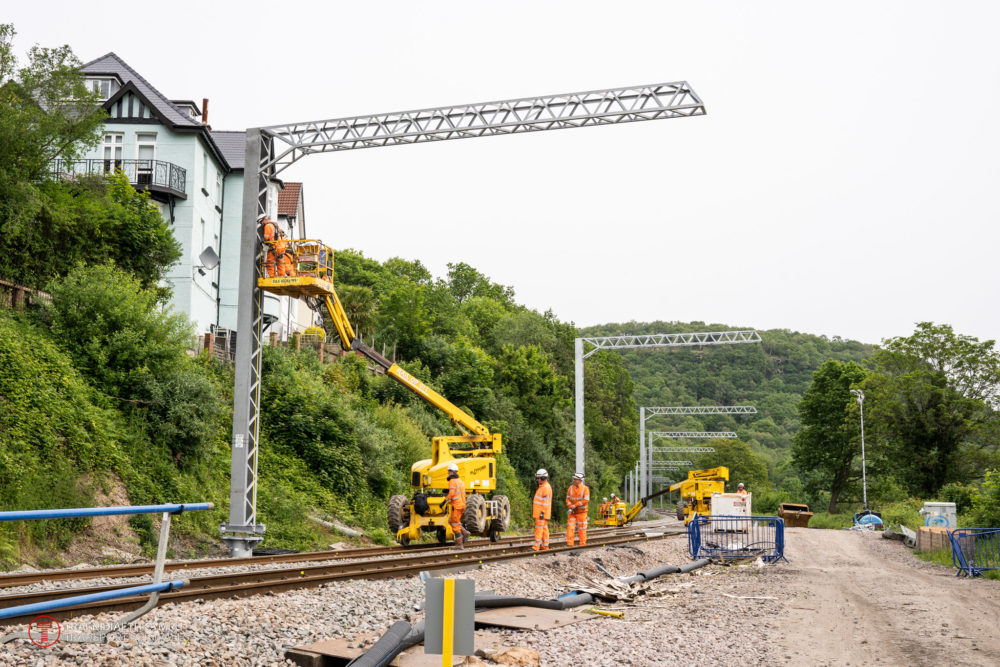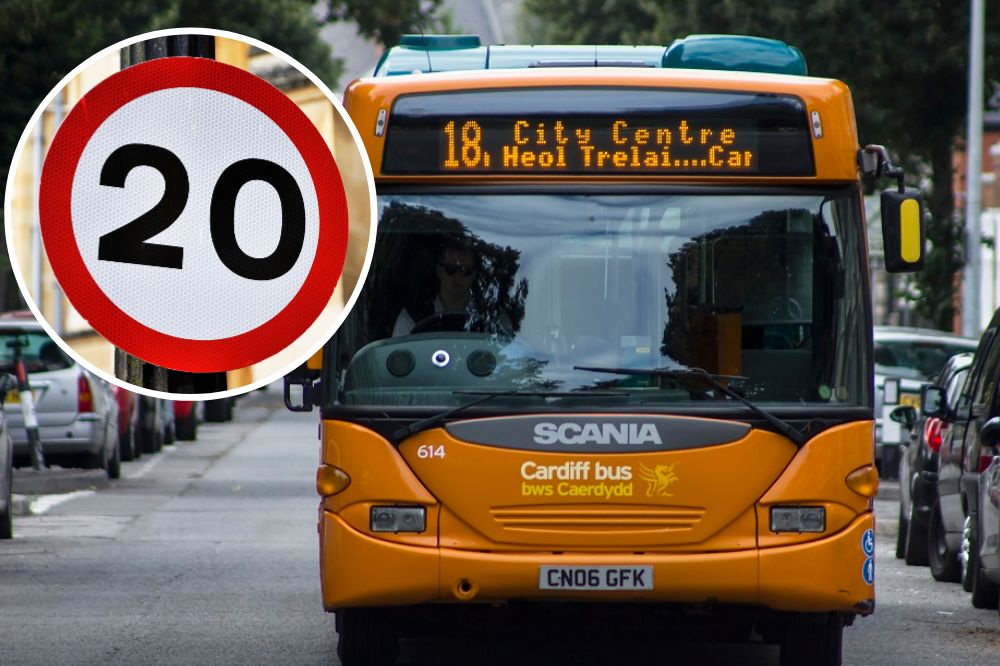The transport challenges facing the new First Minister in 2024

Professor Stuart Cole, CBE. Emeritus Professor of Transport Economics and Policy, University of South Wales
By March we will have a new First Minister (FM) who will have to face several transport challenges, for example, reduced bus service levels, the 20-mph speed limit backlash, delays in completing the Core Valley Lines electrification scheme and the late introduction of new trains throughout Wales.
Whether to reverse decisions on road building where the current cabinet have decided to reduce the programme may be made for the new FM by the government’s financial position.
The outgoing FM, Mark Drakeford put transport into the climate change ministry and found a willing partner in his transport minister Lee Waters.
Mr Waters’ climate change agenda determined transport investment and routine spending in 2023 rather than economic growth and inward investment. This was not unexpected having known Lee for many years and of his commitment to active travel and the environment.
Climate change is a major challenge to our way of life. However China and India will not change their energy base and COP 28 couldn’t stop some middle eastern oil producers continuing to produce fossil fuels (crude oil) because all three find it financially beneficial.
Then should it not be the role of a small country like Wales to prioritise the importance of transport to the economy and employment?
Inward investors
The final decision on this may well lie with the new First Minister. One of the candidates, the current economy minister Vaughan Gething, will be fully aware of the criteria considered by potential inward investors.
These require good road and rail networks to move components / finished goods and people.
Wales’ rail passengers are already receiving the brand-new diesel and electric trains providing more passenger capacity, shorter journey times and higher frequencies to encourage a shift from the motor car to rail transport.
The new government will be faced with capital funding increases required to complete the Valley Lines (Metro) electrification having already risen from £800m (including a £300m contingency) to £1.1bn.
The Welsh Government has to fund this investment itself, because in 2005, the then Welsh Assembly Government turned down the opportunity to take over responsibility for rail infrastructure with Barnett consequential funding – which Scotland has successfully achieved.
This was a wrongly-advised mistake and should now be corrected. Maybe not in discussion between the FM and the current UK Conservative government, but certainly if that becomes a Labour government. We can then expect to receive Barnet consequential funding from HS 2.
Such a move might help push forward electrification of the main railway lines to Swansea and Holyhead and open the Swansea District Line to a regular time saving service to west Wales.
Rail strikes in England are likely to continue. The trade unions and England’s Department for Transport have failed to reach agreement. In Wales the government – trade unions agreement kept TfW trains running so long as Network Rail track and signalling staff kept working. Welsh Minister’s could not affect the latter.
During this coming year however all Valley Lines track will be operated by TfW not Network Rail, though there is the next round of Wales’ railway pay negotiations to be faced.

A political ‘hot-potato’ for the new FM and his (yes, only men are standing) government will continue to be the 20-mph speed limit.
The research is clear – there is less chance of being killed if you are hit by a motor vehicle travelling at 20-mph than one travelling at 30-mph. However the decision was not made on the criteria usually in place for prioritising transport expenditure.
All transport capital schemes are usually evaluated using the government’s WelTAG process which examines the strategic, economic, financial, commercial and management aspects of a scheme; compares factors such as the value for money, public acceptability and impact on other objectives. The 20-mph scheme was evaluated on safety alone – was that appropriate?
Even in the government’s own survey 52% of respondents were against the scheme and within three months an ITV Cymru Wales survey showed 70% were against the new urban limit.
However the government received a majority in the Senedd (with Plaid Cymru support) passing the legislation.
‘Blanket limit’
So what went wrong? Clearly the public were not brought along. The initial publicity descriptive of a ‘blanket limit’ was not to be the case; not even in urban areas.
In consequence the minister had to backtrack. The implementation has found many instances of speed limits changing four or more times in two miles. This with the government’s refusal to fund repeater 20-mph signs has caused confusion for drivers with some travelling at lower speeds than the law allows.
This column has pointed to increased bus company costs resulting from the reduced speed limit if they wish to maintain frequencies; many however have reduced frequencies and in consequence peak time passengers going to work have not been picked up on fully – loaded buses.
Ironically, as the 20-mph scheme was being introduced the Bus Transition Fund came to an end. It was set up indirectly as a consequence of Covid to support bus companies and frequencies until passenger demand reached at least pre-Covid levels.
Climate change expenditure for 2024 – 25 was cut by 4.79% in the draft budget last month. Most of this is for transport so putting in jeopardy the government’s 2022 White Paper One network, One timetable, One ticket contractual basis which this columnist has recommended for over forty years.
This would make bus and rail travel easier and more convenient but there was already a financial issue raised by Lee Waters last year.
Transport is one of the top four criteria (alongside government grants, utilities / land availability and available labour) used by companies considering Wales as a candidate for inward investment. Transport is also a base means of changing modal split and contributing to climate change.
So some fundamental changes are needed in the role of transport policy and investment. With that in mind, this column wishes both Jeremy Miles and Vaughan Gething successful, exciting campaigns and will of course continue to comment on the new FM’s transport policies.
On that note may I wish you Blwyddyn Newydd Dda / Happy New Year, in the challenging time ahead for transport users and providers.
Support our Nation today
For the price of a cup of coffee a month you can help us create an independent, not-for-profit, national news service for the people of Wales, by the people of Wales.







Thank you Stuart for this emminently sensible article. I’m not sure how much hope I hold for the next shuffled deck Welsh Labour Welsh Government in making the best decisions for Wales. A dogmatic bunch – they do not like listening to public consultations as I have found in my own sector.
At least retired Professor Stuart Cole can claim to be consistent. The case for business as usual
I don’t take much notice of what he says anymore, since he opposed reopening the line between Carmarthen & Aberystwyth .
Maybe because that route, whilst it would be scenic, but slow, would be an expensive vanity project.
Some corrections are required to the article. The national 20mph limit was never intended as a “blanket” limit and always a “default” with local highway authorities making exceptions. There was no “backtracking” on this. Where local highway authorities have introduced “buffer” limits then this is a widespread practice in UK when a national 60mph limit transitions into a 20mph limit. The Welsh Government did not “refuse to fund 20mph repeater signs”. It is a UK Government signage requirement that “national” speed limits are not allowed to have repeater signs. This was the case with the “national” 30mph limit and hence… Read more »
To be honest the trains and buses are so bad now I might as well buy another car.